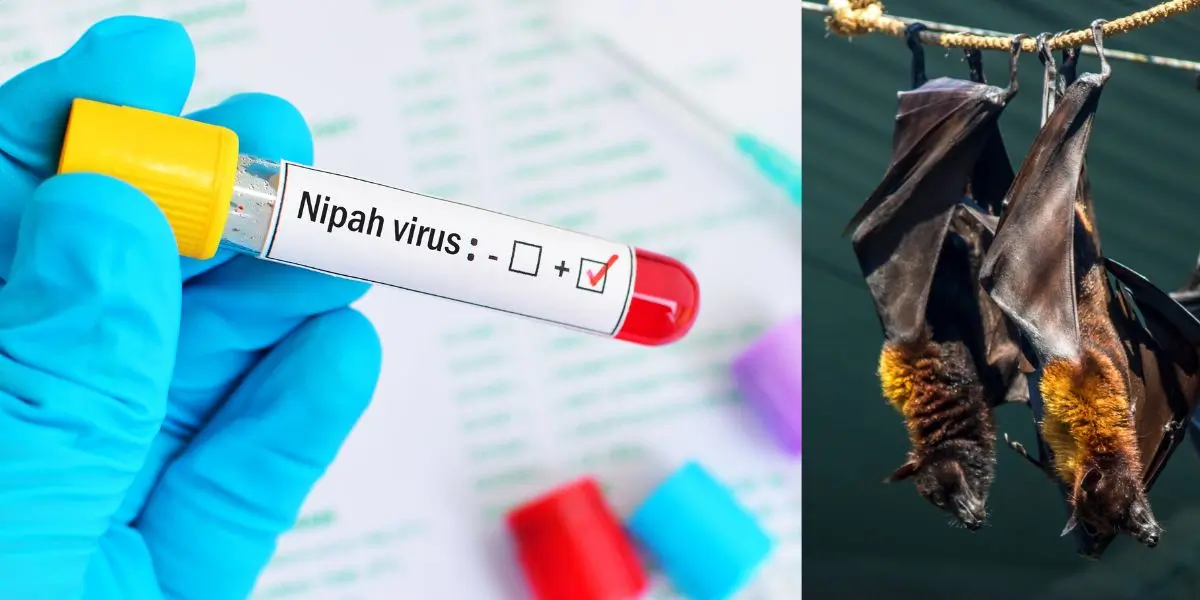Kerala on Alert: Nipah Virus Outbreak Raises Concerns
Nipah Virus Strikes Kerala Again
Kerala, a state in southern India, finds itself grappling with its fourth Nipah virus outbreak since 2018, causing significant apprehension among health officials and the public.
Recent Nipah-Related Deaths
The Nipah virus has claimed two lives in Kerala, with one fatality occurring earlier this month and another on August 30, both in the Kozhikode district.
Family Members Test Positive
Adding to the alarm, two relatives of one of the victims have tested positive for the virus and are currently under medical supervision.
Understanding Nipah Virus
Nipah virus is classified as a ‘zoonotic illness,’ meaning it can be transmitted to humans from animals, including pigs and fruit bats. It can also spread through contaminated food and person-to-person contact.
Varied Symptoms and Severity
Symptoms of Nipah infection can vary widely, with some individuals showing no signs, while others experience severe respiratory problems. In severe cases, the virus can lead to neonatal encephalitis, a serious brain disorder.
High Mortality Rate
One of the most concerning aspects of Nipah is its high mortality rate, as there is currently no specific medication or vaccine available for treatment. Medical intervention primarily focuses on symptom management and supportive care.

Government Response
India’s Minister of Health, Mansukh Mandaviya, has announced the dispatch of a team of experts to Kerala from the federal government to assess the situation and provide support to the state authorities.
Virus Strain Identified
The state’s Minister of Health, Veena George, confirmed that the virus strain in the current outbreak matches the one discovered in Bangladesh. Teams from the National Institute of Virology in Pune are setting up a mobile lab for virus testing and bat surveys.
Preventive Measures
To contain the virus, the state government has established a control room in Kozhikode and instructed healthcare professionals to adhere to rigorous infection control measures. Several villages in the Kozhikode district have been designated as containment zones, leading to temporary closures of schools and offices.
Public Caution Advised
Chief Minister Pinarayi Vijayan has urged the public to exercise caution, wear face shields, and visit hospitals only for emergencies. He reassured the public that individuals in contact with the infected patients were receiving appropriate treatment.
Addressing the Root Cause
Experts attribute the increased risk of zoonotic diseases like Nipah to habitat loss resulting from rapid urbanization and deforestation in Kerala. The proximity of animals and humans heightens the risk of virus transmission, underscoring the importance of preserving natural ecosystems to prevent the emergence of deadly diseases.
FAQs about Kerala On High Alert Following Nipah Virus Deaths
Q1: What is the Nipah virus, and how does it spread?
A1: The Nipah virus is a zoonotic illness that can be transmitted to humans from animals like pigs and fruit bats. It can also spread through contaminated food and person-to-person contact.
Q2: Are there any specific medications or vaccines for Nipah virus treatment?
A2: Currently, there are no specific medications or vaccines available for treating Nipah virus infection. Medical care focuses on symptom management and supportive treatment.
Q3: How has the government responded to the Nipah virus outbreak in Kerala?
A3: India’s Minister of Health has sent a team of experts to assess the situation and assist state authorities in managing the outbreak.
Q4: What measures have been taken to prevent the spread of the virus in Kerala?
A4: The state government has established a control room, implemented stringent infection control protocols for healthcare professionals, and designated containment zones in affected villages.
Q5: Why is there an increased risk of zoonotic diseases like Nipah in Kerala?
A5: Experts attribute the heightened risk to habitat loss caused by rapid urbanization and deforestation, bringing animals and humans into closer proximity, and increasing the chances of virus transmission.




